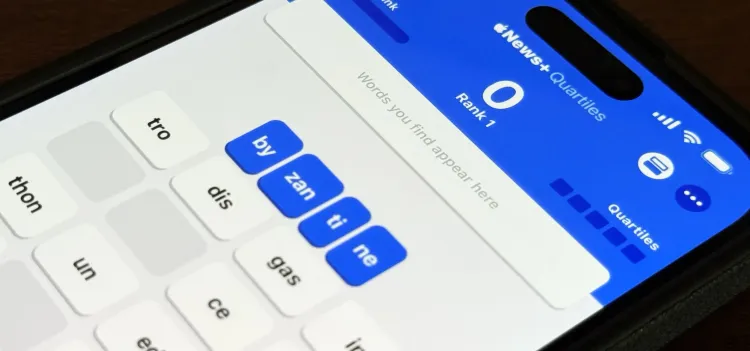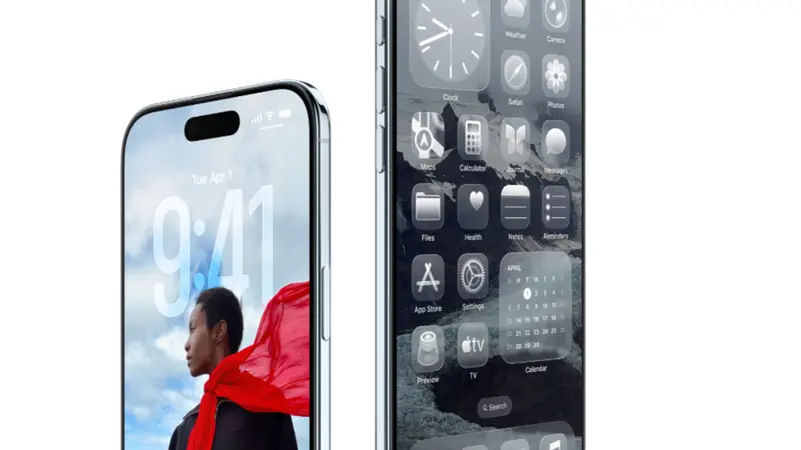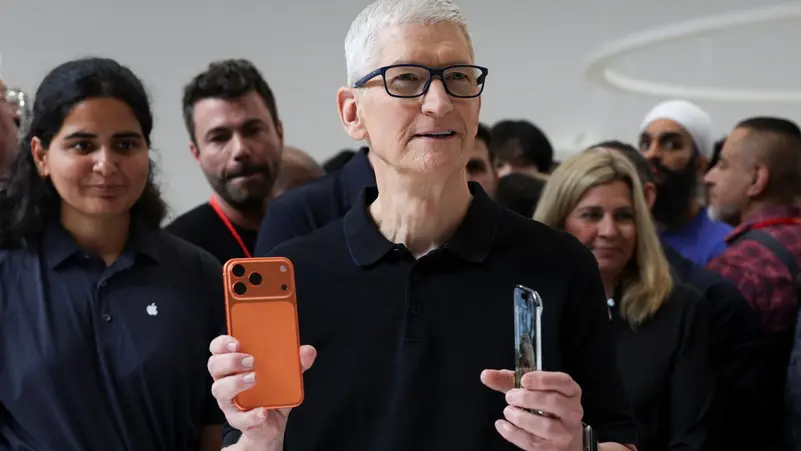The Great Disarming: How “Hot Ones” and “Chicken Shop Date” Broke the Celebrity Interview Mold

There’s a paradigm shift happening in the glamorous, yet often monotone world of celebrity interviews. For decades, the main way for the public to get to know their favorite celebrities was through highly controlled, formulaic television interviews.
These TV appearances were often designed more for promotion rather than revelation. They tell you about a new movie coming out for example, but they rarely tell you what that celebrity really thinks. There’s always that veneer of the perfectly curated public persona, which can get stale and alienating over time.
Thankfully, there’s a new type of interview that has taken the online world by storm, fundamentally altering the way celebrities engage with the public, and changing the audience’s expectations, increasing their demand for more authenticity. Leading this change are “Hot Ones” and “Chicken Shop Date”, two of the most popular Youtube shows of this format.
“Hot Ones” has a simple premise. The celebrity has to answer well-researched and personal interview questions while eating progressively spicier chicken wings. The physical discomfort of this task often disarms the most media-savvy interviewees, leading to uninhibited and hilarious reactions. Meanwhile, “Chicken Shop Date” places A-listers in a mundane, brightly-lit local fried chicken shop for a deliberately awkward “date” with host Amelia Dilmoldenberg. The unglamorous setting humanizes the interviewees, leading to candid and vulnerable moments.
These two shows, and others like them, have created a unique twist on the typical celebrity interview, making them more honest. The genuine reactions and unvarnished personalities are now more sought after, and fit perfectly with today’s online landscape and culture.
The “Traditional” Interview: A Necessary Evil for PR
For decades, celebrity interviews on television, radio, and pint media were highly structured. They operated within what is known as the “Press Junket model”, designed to maximize efficiency and reach, in order to get the word out about a project quickly.
In this system, the actors, directors, and other talent stay in a hotel suite for 1-2 days. Journalists and television crews from various channels and media are then ushered in for tightly scheduled interviews. Each interview would last about five to 10 minutes. The setting is sterile and impersonal, typically a hotel room with minimal decoration, perhaps with the movie poster in the background, and the lighting is meticulously arranged to flatter the star.
The stars are typically given rehearsed answers or talking points by their publicist; basically things they need to mention to promote their project. The rapid-fire nature of the short interviews, one after the other, and the repetitiveness of the questions, means they usually end up giving similar answers on all interviews
A publicist is often present at these interviews to ensure the conversation stays on track, to manage time, and to intervene if a question goes off topic or if a star says something that could damage their project or reputation.
The interviewers are given guidelines about what they should or shouldn’t ask about. If they repeatedly try to ask “gotcha” question or break the guidelines, they risk not being invited to future junkets, and losing their access to the star.
The press junket event is often wholly paid for by the production company behind the project, and considered a marketing cost. This includes the hotel suite, the catering, the PR team, the press kits, even the journalists’ travel to and from the location. If the project is a movie, it is paid for by the production company or movie studio, if it’s an album, it is paid for by the record label, if it’s a book it is paid for by the book publishers, etc… This guarantees that they present and publicize their product in the best possible light, but it also means that journalists would be less inclined to criticize them. They are more likely to comply and provide a sanitized image.
Many news organizations have strict criteria about not accepting freebies, or paying your own way, in order to maintain objectivity, but this often doesn’t apply to smaller outlets or those specializing in entertainment news.
The Polished Persona
Within this controlled environment, celebrities often treat the interview like just another role they play. They rehearse talking points, and try to appear as polished as possible. Questions about their experience working with another star, any challenges they faced, or the message of the project are all met with rehearsed, prepackaged answers. Even if the answer is technically true, it still lacks spontaneity and depth.
The interviews are not trying to show the authentic personalty of the celebrity, they are more about delivering quotable soundbites suitable for morning news or magazine blurbs. Any personal revelation or unexpected opinion is too risky, and is promptly shut down by the publicist to avoid PR problems.
Audience frustration
The rigid quality of these interviews ultimately led to audience frustration. Seeing the same celebrities giving the same answers over multiple platforms gets old. There’s always this feeling that they are only saying what they’re “supposed” to say. The interviews come across as inauthentic and disingenuous. The vibrant personalities often seen on screen or on stage are replaced by a more bland, filtered version.
Awkward Interviews
The interviews that people resonate with, and that go viral, are often those where the stars themselves are”bad” at interviewing, or are simply… awkward. For example, figures like Cillian Murphy who is known for his intense on screen performances, but seems visibly disinterested or uncomfortable during interviews. He doesn’t engage in the lengthy banter that is often expected in press junkets, instead giving brief, thoughtful responses.
Other examples include Harrison Ford, who has a dry, no-nonsense approach to questions and cuts through PR fluff, or Kristen Stewart’s early interviews that were marked by fidgeting and an introverted or shy demeanor.
Being seen as “bad” at traditional interviews ironically makes them appear more authentic, meme-able, or like a “true artists” who is unconcerned with performative fame. Younger, digitally native audiences connect to that more.
The desire for more authenticity and genuine moments like this allowed for the emergence of a new interview format, and the success of the new format in turn also made formal interviews less rehearsed, because ultimately that’s what people want.
The Rise of the Unconventional: New Formats Emerge
Youtube and online media became a hotspot for more authentic interviews, because it doesn’t adhere to the strict rules of network television, nor the marketing demands of production companies. Creative individuals have found ways to leverage the freedom found on these platforms and experiment with unusual formats and niche content. They also have a direct access to audiences and can gauge their interest in real time… and audiences demanded authenticity!
The new platforms allowed creators to experiment with absurd scenarios, psychological games, and even incorporate physical challenges. Anything to “spice up” the dry Q&A format and stand out!

“Hot Ones”: The Physical Disarmer
“Hot ones” is perhaps the most well-known example of this new wave of media. It’s made by Christopher Schonberger and hosted by Sean Evans. The show’s concept is quite simple. Evans interviews a celebrity while they both eat 10 chicken wings, each doused in a progressively spicier hot sauce, and ending with the infamous “Last Dab”.
The hot sauces serve as the ultimate physical disarmament. It becomes impossible for the celebrity to maintain the facade of their carefully-constructed public persona, while they’re also grappling with the spicy meal. The rehearsed answers give way to genuine exclamations of pain, hilarious facial expressions, and moments of vulnerability. It becomes impossible to revert to rehearsed talking points with your eyes watering and your mouth on fire.
Sean Evans’ interview style is an important element of the show’s success. He always does meticulous research, and delves into the star’s obscure past work, forgotten quotes, or niche interests, often catching them off-guard. The combination of the spicy food challenge and the deep, incisive questioning forces honest and unconventional answers that are rarely heard in traditional interviews. The memorable and honest reactions, combined with the show’s quirky premise, resonate deeply with audiences.
“Chicken Shop Date”: The Awkward Charm Offensive
On this popular British show, the ordeal becomes more psychological than physical. The creator and host, Amelia Dimoldenberg takes celebrity guests, typically musicians or actors, on an awkward “first date” at a local, unassuming fried chicken shop. The setting itself is so mundane, a far cry from the polished, luxurious environments that celebrities are used to.
What makes the show truly shine is Dimoldenberg’s persona. She plays a deadpan, subtly flirtatious, yet awkward interviewer, and asks a mix of insightful and nonsensical questions (“Do you think the Mona Lisa is hot?”). Her unblinking stares and dry British Humor forces the interviewees out of their comfort zone, as they are forced to react spontaneously to her eccentric charm.
The show also benefits from hilarious editing that highlights every awkward pause and witty retort, amplifying the comedic effect.
This show does not rely on the physical disarming of hot sauce, but on the psychological or social awkwardness of everyday life, making it very relatable, and also allowing the celebrity guest to express themselves in a more human, unassuming way.
Other Noteworthy Examples
“Hot Ones” and “Chicken Shop Date” are far from the only entries in this innovative interview format. There’s an entire wave of shows that try to bypass the polished PR machine.
An important precursor of these shows is “Nardwuar the Human Serviette”. It’s one of the earliest shows in this format. The Canadian interviewer is renowned for his ability to research obscure facts about his guests and present them with relevant gifts. His quirky personality and meticulous preparation consistently elicits shock, delight, or bewilderment from his guests. Deep knowledge can be just as disarming as a physical challenge.
There are other shows like Vanity Fair’s “Lie detector test”, where celebrities are hooked up to a polygraph and asked both lighthearted and personal questions. The tension of the lie detector test prompts more candid responses. There’s also Buzzfeed’s Celebrity “Puppy Interview” where the guest attempts to answer questions while being surrounded by cute, distracting puppies. The chaotic, playful puppies help break down the stiffness of normal interviews and elicit candid responses.
Why Do Celebrities Appear on These Shows?
Despite the potential for awkwardness or the unfiltered, unpolished environment of these shows, celebrities are becoming more eager to appear on them due to a combination of factors:
Authenticity and Humanization:
Modern audiences are increasingly skeptical of curated images. These shows provide a unique opportunity for stars to appear more genuine.
The unvarnished quality of these shows disarm celebrities, revealing a more relatable or vulnerable side. This fosters a more authentic connection with fans.
Targeting New Audiences:
These Youtube shows command massive followings, many of them are younger digital natives who rarely watch traditional media and would find traditional interviews boring and fake.
Appearing on these platforms allows celebrities to reach a younger audience in a format they are more familiar with, increasing their cultural relevance.
Viral moment potential:
The unique premise of shows like “Hot Ones” or “Chicken Shop Date” are made to create shareable, viral clips.
A funny reaction or unexpected confession can spread much more rapidly on social media, compared to traditional sound bites.
Break from Repetition:
These shows are often a breath of fresh air for celebrities themselves, who are used to repetitive questions and boring press junkets
The host’s style and deep questions can make for a fun and engaging experience that feels more like a memorable interaction and less like work.
Host Credibility:
Some of these show hosts, like Sean Evans and Amelia Dimoldenberg, have become celebrities in their own right, and have a loyal fanbase.
Appearing on these shows allows a celebrity to tap into an existing fanbase and advance their career.
The Future of Celebrity Engagement:
The celebrity interview has been transformed forever. People care less about perfectly composed, rehearsed performances, and are more drawn to authenticity and vulnerability. Shows like “Hot Ones” and “Chicken Shop Date” fundamentally altered the media landscape, so that even traditional media is now forced to adapt to this newfound demand for realness.




